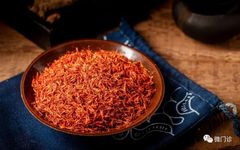
Hello, I am a TCM practitioner, Wen Junran.
Today, I present you with a TCM diagnostic question.
Suppose you have a patient in front of you, diagnosed with Gan Yu Qi Zhi (Liver Qi Stagnation). What should be the olfactory characteristics of this patient?
A, shortness of breath
B, belching
C, gasping
D, sighing
E, deep sighing
If you have an answer in mind, feel free to write it in the comment section. Teacher Wen looks forward to seeing your insights. To encourage independent thinking among more friends, your comments will not be publicly selected until the answer is announced.
Analysis of the previous question——

Last time, Teacher Wen asked which of the following options is not a common manifestation of spleen disease. There were five alternative answers: belching, organ prolapse, loose stools, abdominal distension, and bleeding.
I thought this question was simple and that no one would get it wrong. However, it surprised Teacher Wen. There were various answers, and it seemed that the correct choice was not the majority.
The correct answer is A, belching.
Belching originates from the stomach Qi not descending but rising, which is a manifestation of abnormal stomach Qi. You might say, “Teacher Wen, isn’t the spleen and stomach considered together?” Yes, broadly speaking, that is true. If the stomach Qi is not descending, it could also stem from the spleen Qi not rising. However, in this multiple-choice question, we cannot think that way. This question examines the functional differences between the spleen and stomach, as well as their corresponding pathological states, which must be strictly separated. Therefore, the only correct choice is A, belching.
Option B, organ prolapse, is a result of spleen deficiency to a certain extent, leading to the descent of the central Qi. Thus, it is undoubtedly a manifestation of spleen disease. There is no disagreement on this point.
Option C, loose stools, is also straightforward—spleen deficiency leads to the generation of dampness. Dampness descends into the intestines, resulting in loose stools. Therefore, both loose stools and diarrhea fundamentally stem from spleen deficiency and excess dampness.
Option D, abdominal distension, confused some friends. Abdominal distension is indeed also a manifestation of spleen disease. The spleen governs transportation and transformation and is also the center for the normal rise and fall of Qi in the body. If the spleen is deficient, transportation is abnormal, and the rise and fall are not regulated, making it easy for patients to experience abdominal distension.
Note that we are talking about abdominal distension, not stomach distension. If it is stomach distension, then it certainly reflects a stomach disease. Abdominal distension indicates that the disease is not located in the stomach. These subtle differences in wording may seem minimal at times, but they often become the key to success in answering questions.
The last option, bleeding, is the biggest distractor. Many friends believe that bleeding is not a manifestation of spleen disease. In fact, the spleen governs the generation of Qi, and Qi can command and contain blood. Therefore, the spleen plays a role in blood regulation through this channel. If the spleen is deficient, it cannot regulate blood, making patients prone to bleeding. Conditions like menorrhagia, excessive menstruation, and early menstruation all have the pattern of spleen deficiency and weak Qi. Some people also have bruises easily, which should also consider the possibility of spleen deficiency.
Thus, bleeding can also be a manifestation of spleen disease.
In summary, the only correct choice for this question is A, belching.
Alright. Relatively speaking, today’s question is still quite simple. I believe you can answer it correctly. Give it a try.


